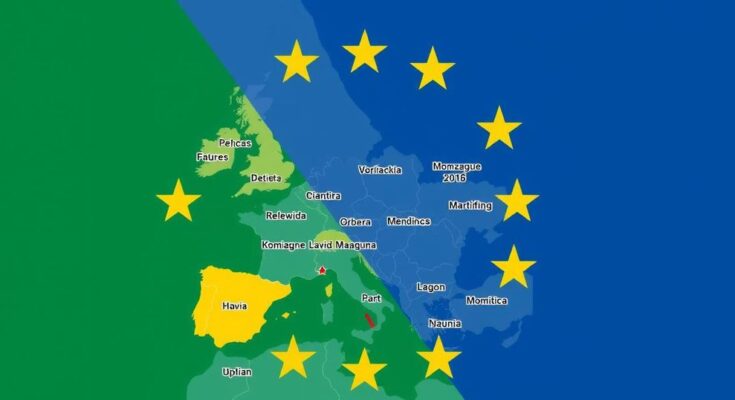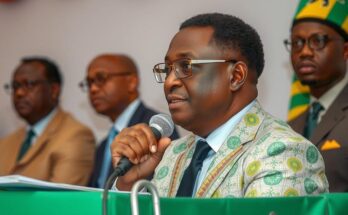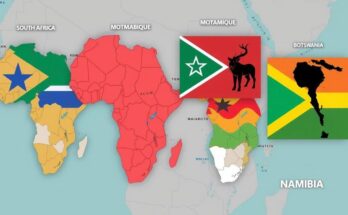The European Union raises alarms over manipulated election results in Mozambique, prompting protests led by Venâncio Mondlane. The recent killings of his aides have intensified unrest and calls for justice amidst a backdrop of alleged electoral fraud involving voter intimidation and irregularities. Opposition parties press for transparency as Mozambique prepares for a potential leadership change.
Election observers from the European Union (EU) have raised serious concerns regarding the integrity of the election results in Mozambique, alleging that certain results have been manipulated amidst escalating unrest in the country. Thousands of supporters took to the streets for protests led by independent presidential candidate Venâncio Mondlane, who holds the governing Frelimo party accountable for the recent violent deaths of his lawyer Elvino Dias and political associate Paulo Guambe. As the public awaits the official results from the elections held on October 9, Mondlane has already claimed victory, asserting that these acts were politically motivated and the responsibility of security forces. In their statement released on Tuesday, the EU observers revealed evidence of “irregularities during counting and unjustified alteration of election results at polling station and district level,” pressing electoral authorities to ensure a transparent tabulation process. Additional reports from the International Republican Institute, an independent monitoring body, highlighted occurrences of vote-buying, inflated voter rolls in Frelimo strongholds, and voter intimidation. Despite the electoral commission’s assurances of transparency, their website is currently inactive due to a purported cyber-attack, raising further doubts about the integrity of the electoral process. Following the protests in the capital city, Maputo, police responded with live ammunition, tear gas, and heavy equipment, resulting in injuries and numerous arrests among demonstrators. There is a growing call for justice from both citizens and international entities, with notable figures like former President Armando Guebuza and celebrated author Mia Couto condemning the violence and labeling the killings of Mondlane’s aides as a “crime against the nation.” With President Filipe Nyusi set to vacate his position following term limits, the stakes are high as Mozambique approaches a significant shift in its political landscape.
Mozambique has a long-standing history of political challenges, predominantly characterized by the dominance of the Frelimo party, which has ruled since the nation’s independence from Portugal. The recent elections are pivotal because President Filipe Nyusi will be stepping down, marking a notable change as the country prepares for a potential shift in power dynamics. With multiple opposition candidates contesting the presidency, integrity in the electoral process is crucial, especially considering allegations of corrupt practices and recent violent events surrounding the elections. The calls for accountability following the deaths of political figures have intensified scrutiny on the Mozambican government and its security forces, amplifying concerns about the protection of democratic processes and human rights in the country.
In summary, the allegations of falsified election results in Mozambique, as highlighted by the EU observers, combined with tragic incidents of violence against political figures, have led to increased unrest and widespread protests. With various opposition candidates vying for power and the impending departure of a long-standing president, these developments may herald a significant transformation in Mozambique’s political landscape. The calls for transparency, accountability, and justice reflect the urgent need for reform as the nation navigates these turbulent times.
Original Source: www.bbc.com




